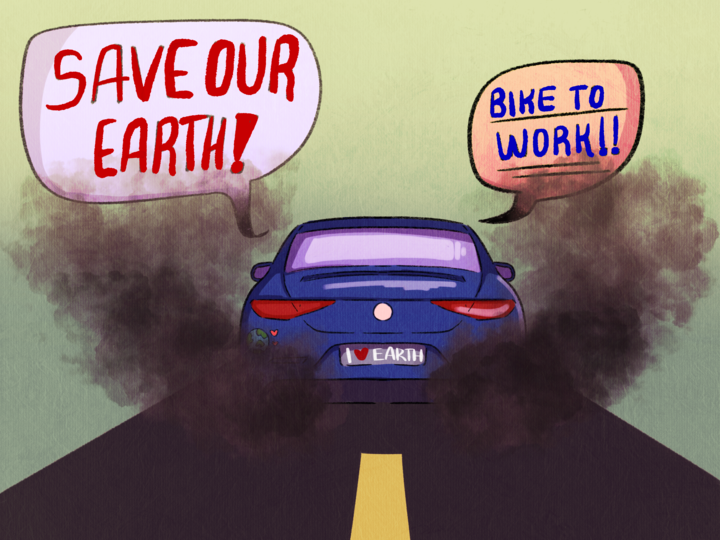We live in an age without reasonable discourse. Rather than engaging in active thought, most would rather accept whatever ideology those around them have accepted and then defend it fanatically. This has led to the elimination of discussion on issues such as the legality of abortions.
As a result, many pockets of society have accepted the “right opinion” to many complicated issues and believe that anyone who hasn’t “drank the Kool-Aid” is either a bigot or uninformed.
We are all guilty of this to some extent. We might believe—quietly or otherwise—that those who oppose abortion misunderstand the fight for women’s rights. Or, we’ll think that those who support stronger immigration controls are xenophobic bigots, and while we’d like to think that our opinions on this matter come from a stance of intellectual detachment, in reality, it likely comes from how you were raised and who you associate with.
RELATED: Political views across the family landscape
For example, there is a strong correlation with youth and liberalism, just as there is a strong correlation between wealth and conservatism. Our political ideologies are so strongly linked to our demographics that many campaign managers will completely ignore one demographic or another, accepting that they will lose the demographic’s vote no matter what.
It’s human nature to adopt the ideology of those around us; it’s human nature to lash out against those who directly oppose our ideology. This tribalistic tendency has quelled all reasonable discourse, as anyone who has posted anything political online can likely tell you.
Rather than coming together to answer tough questions—like how much immigration control we should have—how we should combat climate change and how taxes should be collected and distributed, we have instead decided that our opinion about the issue is the right one and those who disagree are wrong.
There are, obviously, some beliefs which are categorically wrong and easy to dismiss: Those who believe the earth is flat, the government is using fluoride to control us or world leaders are actually lizard-men in human disguise—yes, there are actually people who believe each of these things—can easily be ignored in the realm of reasonable discourse.
The majority—thankfully—doesn’t adhere to any of these easily dismissed beliefs. Everyone likes to think their beliefs are based in reason.
There are equally valid opinions on how many issues should be handled, and the deciding factor of how we should respond to these issues depends not on the outcome we hope to see, but rather how we choose to interpret facts. As is the case with the abortion discussion.
RELATED: Foreign language learning frustrations
While 29 percent of people support abortion in all circumstances and 50 percent support it in certain circumstances, the supporters accept the unpleasant nature of an abortion as a necessary evil for a greater good.
Former Secretary of State Hillary Clinton said during her 2008 presidential campaign that abortion should be “safe, legal and rare,” which is a common mantra for pro-abortion activists. This mantra recognizes that the costs of forcing a woman to carry a pregnancy to term is detrimental to both the potential mother and society as a whole.
Those against abortion in all instances will often recognize the strength of the pro-abortion camp. However, they believe that the fetus is actually a person who has yet to be born and should be recognized as such, and as a result, they should have all the protections, both legal and moral, that an infant would have.
The defining issues between the pro- and anti-abortion camps doesn’t come down to what the societal costs are of forcing a woman to carry a pregnancy to term. It comes down to what type of societal standing a fetus should have. Unfortunately, this debate is ultimately impossible to solve, for it comes down to a moral issue which each member of society must answer individually.
Whatever you choose though, remember the other side is just as “correct” as you are.
Follow Jackson Morrison on Twitter.









